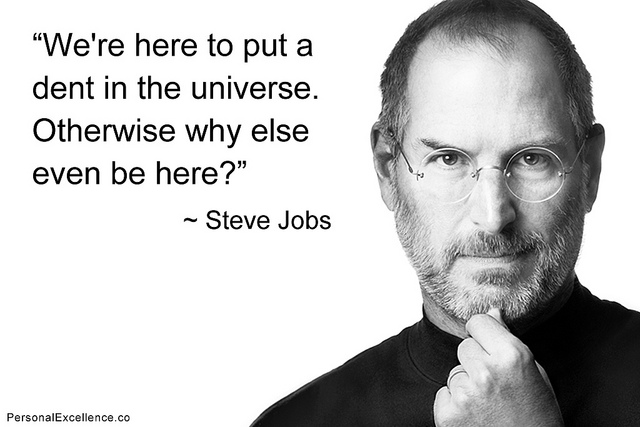opinion
What kind of leadership are we developing?
The resources available to educate, support, challenge and inform current and aspiring leaders to develop their leadership are enormous.
Few of them recommend directive or autocratic leadership except in cases of emergency, life or death situations, or situations where absolute obedience (such as in the armed forces) is essential.
Many of them extol the value of leadership which enables, facilitates and releases individuals’ capabilities. And yet a conception of leadership which is about telling people what to do, micromanaging them to do it, and demanding compliance is disturbingly common.
Leadership I don’t recommend!
My coaching clients span a wide range of sectors. Across all the sectors I work in I’m struck by how many CEOs and their senior teams slavishly follow a model of leadership which represents how they believe they and others ‘ought’ to be, which stifles challenge and innovation through the illusion that doing things the way they’ve always been done is the route to greater success, and which does nothing to explore and release their people’s true potential.
At its worst, such leadership instils a fear of making mistakes, admitting a weakness or even being open about stress.
Leadership is the key to outcomes
Organisations invest in leadership development programmes because they may recognise that leadership – more than anything – is the key to greater effectiveness – much more so than the spreadsheets, the public pronouncements or the mission statements, which actually depend on leadership for their successful enactment.
Leadership qualities
Leadership development means embracing the challenges and being courageous enough to be open to learning, whether that learning is unpalatable or affirming. It means being curious, vulnerable and invested in understanding the systemic factors that shape beliefs, behaviours and relationships. It means learning that can’t simply be taken from a textbook. It means the leader raising their self-awareness to gain insight into their drivers, strengths, and purpose – and into what inhibits them from achieving the outcomes they really want.
Six mental stances for top quality leadership
In my view, six mental stances characterise top leaders: those who create and sustain high-performing organisations, and who perpetually raise the quality of their own and other people’s work:
1) being people-centred and demonstrating humanity: understanding what motivates human beings and knowing how to connect with them and release the best in them (both self and others). Dr Lesley Bromley, who I had the privilege of working with when she was Director of Postgraduate Medical Education at University College London Hospitals, understood deeply how to connect with doctors’ development by acknowledging that each person’s leadership capabilities, drivers, passions, ambitions and inhibitors were individual to them.
2) having integrity: subscribing to ethical values, and delivering on those values consistently whether anyone’s looking or not. Sadly, I’ve had the experience of coaching senior people whose CEOs subscribed to one set of values and commitments at a given moment but shifted those values and commitments when pressures intervened. The effect on trust, engagement, motivation and retention – and hence productivity – of such behaviour were corrosive.
3) being authentic: not only knowing oneself but being comfortable to bring that self to the task of leadership. In my experience the leader who learns how to be authentic, having faced both their angels and their demons, and who has learnt how to manage the tensions between individual and organisational values and imperatives, is compelling and inspiring to follow. They have gravitas and courage, and they inspire others. Think Anita Roddick, Founder of the Body Shop.
4) being open to learning: tough learning through listening to others’ views and feedback can be especially valuable. Some of the most impactful learning I’ve witnessed in clients has been when an individual has sought honest feedback, some of which has been difficult to accept and process. And in accepting and processing it, and doing things differently as a consequence, rich learning has occurred which has been transformational for both the individual and their teams.
5) being courageous: frequently coming from a strong sense of purpose, a preparedness to stretch beyond what feels comfortable, and to inspire with an ambitious vision and obvious belief in people’s capacity. I recall a UNICEF leader I coached who was (like many UNICEF leaders) totally passionate about her role and her contribution. Operating in war zones and terrorist zones that posed risks to her life and the lives of her team members, she unified her teams and equipped them to achieve what had seemed impossible to them.
6) understanding the system – the relationships, the culture and the nature of the power that shows up in an organisation. It’s only by the leader’s exploring, acknowledging and understanding the influences, the unconscious loyalties and the relationships that impact on them, their teams and the outcomes they achieve that they can gain clarity on what is really happening and what the opportunities for change and development are.
Role models
One last word on authenticity: role models are often recommended for those who wish to develop their leadership. In my view, aspiring to a role model can only have limited value because each individual can only ever be their best by being who they are. Learn about features of positive behaviour, yes – but only ever aim to develop your own leadership in your own style.
Photo by Nina Matthews via Compfight
Leadership development
Leadership development means embracing the challenges and being courageous enough to be open to learning, whether that learning is unpalatable or affirming. It means being curious, vulnerable and invested in understanding the systemic factors that shape beliefs, behaviours and relationships. It means learning that can’t simply be learnt from a textbook. It means the leader raising their self-awareness to gain insight into their drivers, strengths, and purpose – and into what inhibits them from achieving the outcomes they really want.
Read more »The global village
In contexts ranging from multinational corporations to social networking, leaders and their teams interact, communicate and influence others in multiple different cultural settings simultaneously. Culture encompasses literally anything which characterises a particular group, and the leader’s task is to release his or her workforce’s capability in this complex and dynamic environment.
Read more »We're all part of the systems
Although we’re all independent human beings, we’re also interdependent, functioning within several systems simultaneously that provide the framework for our relationships to people and organisations, decisions and achievements, beliefs and attitudes. Awareness of those systems and their impact can release blockages in teams, strategy and the implementation of change.
Read more »Executive coaching for leadership and self-leadership
Amongst all learning interventions, the developmental and transformational style of the best executive coaching can equip the leader to deliver leadership that creates a better organisation – and, some would say, a better world - sustainably, with integrity and with authenticity.
Read more »Lessons from neuroscience for learning and performance
Leaders who know how to optimise the conditions for their own and their people’s learning are going to maximise their chances of success for themselves and their organisations. Senior people – indeed anyone thinking about their career development – who build in the search for working environments and a career path that will maximise their learning opportunities is likely to also maximise their chances of fulfilment and therefore success. And those working across cultures or in multicultural environments who know how to maximise harmony, minimise conflict, bring a curiosity for learning and an attitude of acceptance are also going to be those most likely to develop aligned, creative, productive teams and minimise wasted effort.
Read more »Career strategy: purpose and meaning, values and strengths
New Microsoft CEO Satya Nadella has pinpointed meaning at work as a fundamental goal because that’s ‘what makes the best work happen’. In my career development coaching with executives and senior managers, questions of meaning and purpose, values and beliefs, drivers and obstacles, emotional awareness and a capacity to situate yourself in your systems, are core to career focus or refocus.
Read more »The multi-generational workforce - and diversity of pace
In most organisations baby-boomers (and older) work alongside Generations X and Y. Their attitudes to pace can divide them: Xers and Yers often resist the idea of slowing down long enough to reflect while the baby boomers are more inclined to reflect. The generations are most effective when they’re aware of and respect others’ assumptions and world views - and coaches are most effective when they can enter the client’s world.
Read more »Teams, listening and connection
Leaders are sometimes solitary and lonely figures, disconnected from their team . Leaders who who listen to their teams see in return greater engagement, better retention rates and bigger, more long-lasting results.
Read more »Optimism: a route to high performance
Humans tend to overestimate the likelihood of positive events, and underestimate the likelihood of negative events. Optimists work harder and longer hours than pessimists, which may account for their higher pay - and optimism has been linked to achievement in education, business, sport and electoral politics. This doesn't seem to fit with our society's tendency to drive for perfectionism, condemn mistakes, and focus on what's gone wrong.
Read more »Resilience, the bottom line and Ordinary Magic
Research has shown that engaged organisations experienced 11.74% quarterly revenue growth compared to a 6.30% decline in revenue at organisations with less engagement - and resilience helps build engagement. resilience is often the backdrop to my executive coaching, Success isn’t about travelling a smoother road but rather about climbing out of the pothole and bouncing back – and the key to being able to do that isn’t just to keep going, but to keep learning. Also relevant is the work of Ann Masten, on Ordinary Magic: children’s resilience is linked to: connection with competent and caring adults, cognitive and self-regulation skills, positive views of the self, and motivation to be effective - just like leaders in many ways.
Read more »











